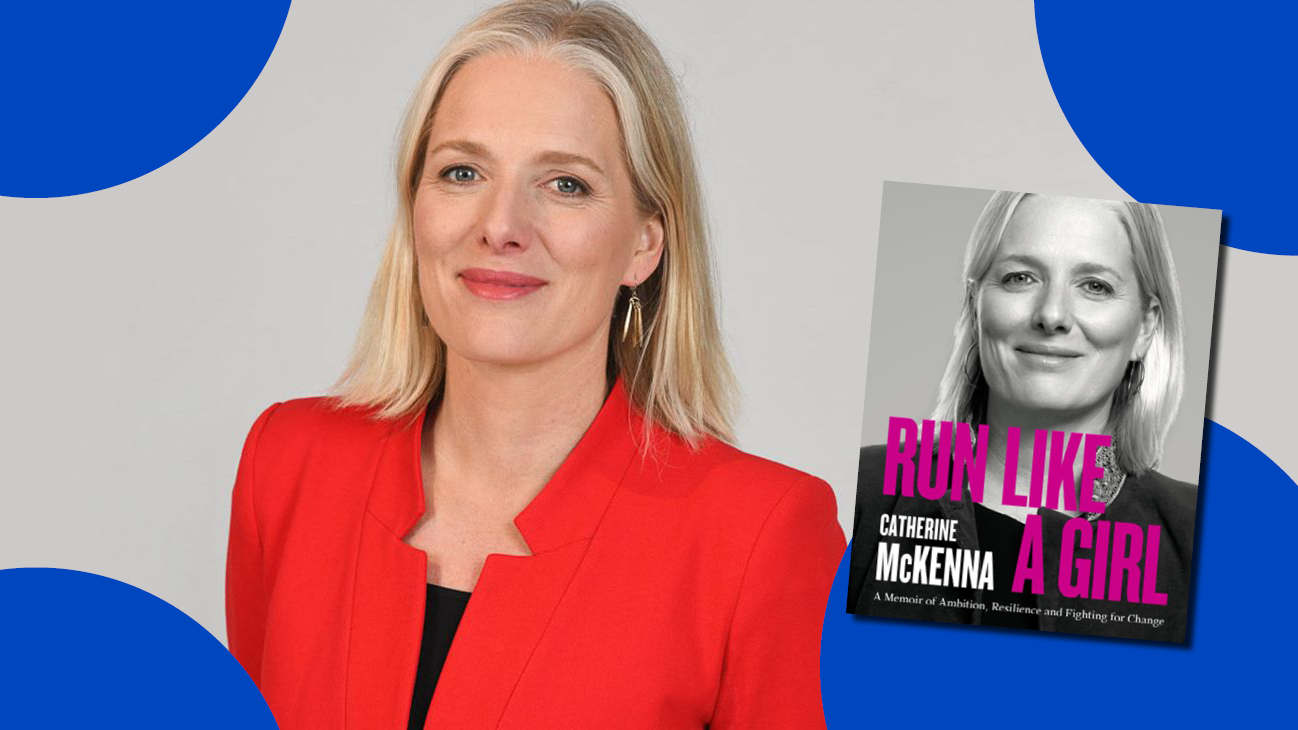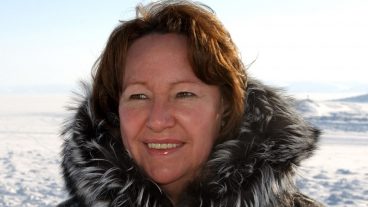From Olympic dreams to the frontlines of politics and climate justice, the Honourable Catherine McKenna’s new book, Run Like a Girl: A Memoir of Ambition, Resilience, and Fighting for Change, charts her personal and political journey through leading Canada’s climate plan to withstanding sexist attacks like “climate Barbie”.
In this unique scrapbook-style format, Catherine blends candid stories, political insights, and reflections on motherhood, ambition, and activism, while recounting her fight for climate policy, the ups and downs of public service, the tough decision to leave politics, and her mission to empower women in leadership.
We recently spoke with Catherine about her new book and how, through this timely and deeply personal call to action, she hopes to inspire others to find their own path, break the rules, and fight for the future — on their own terms.
A Different Kind of Political Book
Speakers Spotlight: You formatted your memoir in a scrapbook-style. Why did you choose this unique structure, and how does it reflect the story you wanted to tell?
The Hon. Catherine McKenna: People engage with books in different ways. I wanted this to be a book where you can go and read it all at once, or you can flip to a specific chapter and just read about my time in politics or being a mom or leadership, or whatever. I want readers to mark it up, shove it in their bags and bring it with them to places, share it with other people, etc.
It’s not meant to be a fancy book, which is the opposite of many political memoirs. It’s also not a chronology of politics. It’s about how I approach change, fighting for change, and doing it on my own terms. It provides a top-down look at how to build a team; get things done, particularly in politics; and how sometimes you fail and you have to keep going. Hopefully it will be an inspiration for women and young people who are also trying to fight for change.
The Olympic Dream That Shaped a Leader
SpSp: You write about your Olympic dream in your memoir. How did your athletic background shape your resilience and leadership style?
CM: Whenever anyone asks, did you always want to be a politician? I laugh. I always wanted to go the Olympics. That was my #1 dream. People always assume me being a lawyer or working internationally is what prepared me for politics. No, it was competitive swimming. It provided an important framework for almost everything I do — setting long-term goals, being part of a team, leading a team, etc. Whether you’re getting elected, starting a charity, working on climate change, you need to have that same discipline and ability to work with others and be ambitious about your goals.
I say this a lot in business, if you want to win on climate, that’s an ambitious goal. It’s the same if you want to be an Olympian. You are going to have a stretch goal, and every day you need to do the work to get there and readjust as needed. That’s how people win gold medals and break world records. While I didn’t make the Olympics, I went faster and farther than I thought I could and that’s how I learned how to work.
Building Canada’s First Serious Climate Plan
SpSp: While reflecting on your climate leadership in your memoir, what are you most proud of from your role in shaping Canada’s climate plan?
CM: We did hard things. It’s the first time Canada has had a serious climate plan, and we did it by building on what provinces and territories had already done. It’s hard to work on climate right now, particularly with Donald Trump in power, he’s very disruptive. But there’s always going to be opposition, and we were able to do big things.
I’m also proud that I did things on my own terms. I was told I wouldn’t win my riding, to which I said, watch me. They said don’t bother with students or young people or marginalized people, but we focused a lot on engaging with those communities because it was important to our campaign, and we won. It can be hard to do things your own way. There is pressure to behave in certain ways. When I was young, I was a decent soccer player, but there were more boys than girls playing soccer. I was told that I “run like a girl”. It was the biggest insult they could give. I thought about that a lot, that I needed to do everything like the boys. One day I woke up, I was working at a corporate law firm, and I wasn’t happy. I was sacrificing time with my kids to not do what I love. So, I started a charitable organization, doing pro bono work in Canada and overseas with a friend. In the end, that decision led me to so many paths.
It’s hard to do things on your own terms, you second guess yourself. But in the end, it’s your life, and I hope to inspire others, especially women and young people, to push back and do things they believe are right.
Fighting Back: Combatting “Climate Barbie”
SpSp: You faced deeply sexist attacks during your time in office. What strategies helped you withstand them, and what advice would you give women leaders dealing with similar challenges today?
CM: It was weird. I am a woman. I was hired to do a job, which was to tackle climate change, and I had to battle misogyny and climate denial at the same time. And it was not just online, it jumped offline too.
For a year, I did nothing. My team said, don’t say anything, it’ll make you look weak. Then, I was at the UN with other world leaders working on climate, and a former minister, a colleague of mine in the house of commons, called me “climate barbie”. That was it. I did a post on social media saying, “do you use this kind of language with women in your life? Don’t think you can push women out of politics.” It went viral and most Canadians said it was not ok, across the political spectrum. That was an important reminder that Canadians are reasonable, so be reasonable. This was important advice, a reminder that Canadians are decent people and we need to call things out to remind them what’s acceptable behaviour and what’s not.
I do a lot of work with women in politics to support and speak out about the abuse I faced but the only way to change is having conversations and taking measures that matter. We need to address hatred and attacks on social media, we need to be better and stop thinking it’s ok to engage in personal attacks and then have them amplified online. We need to provide more security to those in politics. It’s not about me or a particular person, it’s about democracy. We need good people to run, we need people from diverse backgrounds to run, and these are the people who often get the most attacks. That is not ok. I will always stand up for that. We need to change because otherwise we will drive good people out of politics.
A Call to Action: You’re Not Alone
SpSp: You describe the book as a call to action to “find your own path, break the rules, and fight for the future.” What do you hope readers take away from your book? From a leadership perspective and climate perspective?
CM: I hope readers take away that the things they are fighting for, there are other people fighting for it too. You might be the only person talking about climate change at your meeting but there are other people in other places doing the same thing. It’s hard to feel alone, but you’re not alone and there are a lot of people doing the same thing. That’s how we get change, it’s not linear, it’s not one person.
Hire Catherine McKenna to Speak at Your Event
As the former Minister of the Environment and Climate Change, the Honourable Catherine McKenna has spearheaded ground-breaking environmental initiatives across Canada. She was a lead negotiator of the Paris Agreement, has successfully defended landmark legislation to establish a carbon price, and led the efforts to phase out coal, reduce plastics, and double the amount of nature protected in Canada.
Catherine is dedicated to drastically reducing global emissions by 2030 to ensure a sustainable planet for future generations. Her keynotes inspire audiences to take bold action on climate change while providing first-hand lessons on leading change and breaking barriers for women in leadership.
Contact us to learn more about Catherine and how to book her to speak at your next event.




